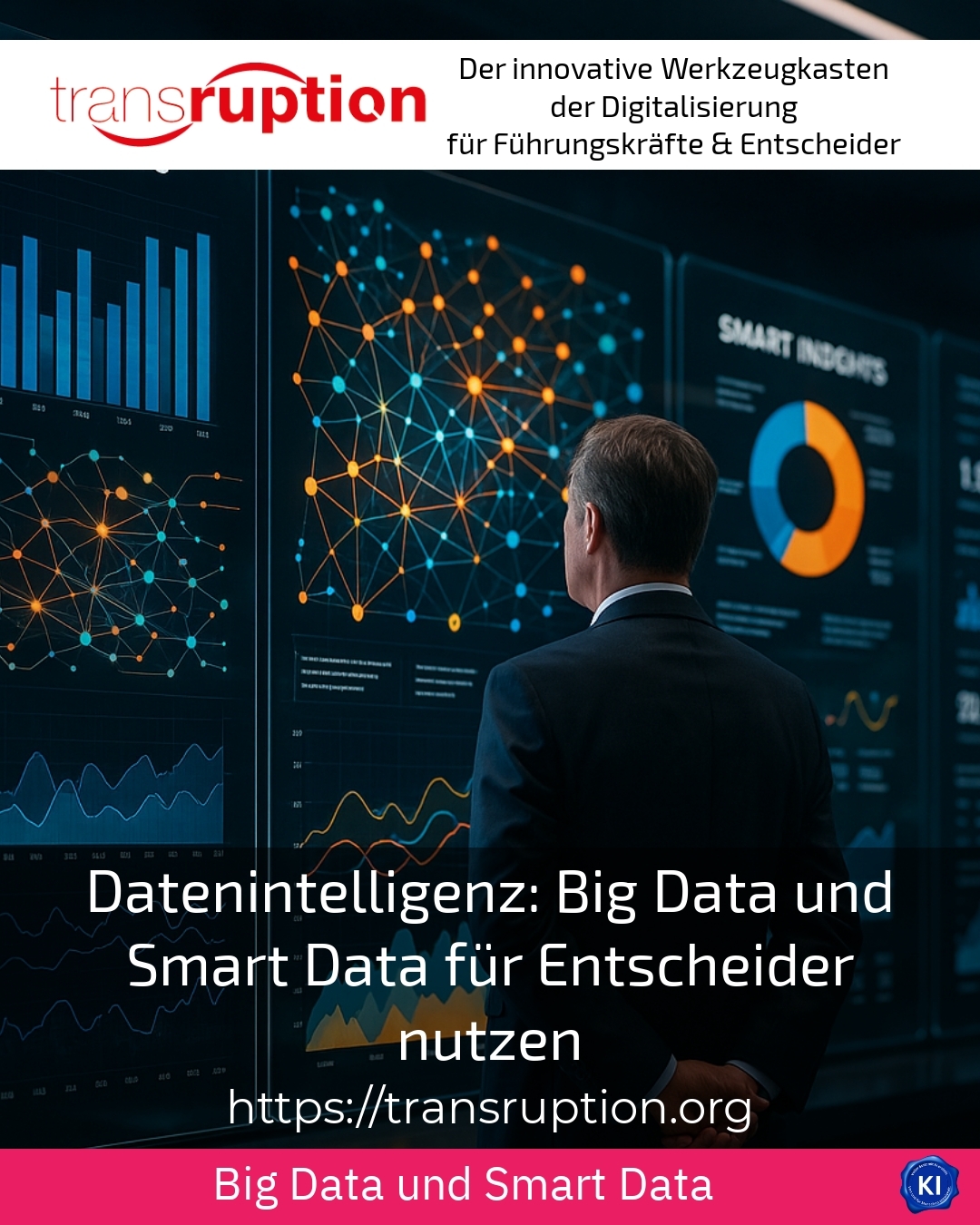In today's business world, many companies decide how they use their data. Data intelligence plays a central role in this. It helps to gain clear insights from huge amounts of data and make well-founded decisions. Many managers ask themselves how they can sensibly combine big data and smart data. The answer lies in the targeted use of data intelligence. It makes it possible to create real added value from the flood of data and to organise projects more efficiently.
What does data intelligence mean for companies?
Data intelligence describes the ability to analyse large amounts of data and derive valuable information from it. It combines technology, methods and human expertise. Companies use data intelligence to optimise business processes, identify risks and discover new opportunities. Most projects start with the collection of big data. This data is often unstructured and diverse. Data intelligence helps to filter, consolidate and analyse it in a targeted manner.
Example: A mail order company collects millions of orders every day. It uses data intelligence to analyse which products are particularly in demand in which regions. This enables it to adapt marketing campaigns in a targeted manner and optimise stock levels.
Another example is industry. Here, sensors are used on machines to monitor their condition in real time. Data intelligence helps to recognise maintenance requirements at an early stage and avoid breakdowns.
In the healthcare sector, clinics use data intelligence to analyse patient data. This enables them to customise treatment plans and improve care.
Data intelligence in practice: examples from the industry
Marketing and customer service
In marketing, companies use data intelligence to better understand target groups. They analyse purchasing behaviour, interests and feedback. This enables them to create personalised offers and increase customer satisfaction.
Example: An online shop analyses which products are frequently bought together. With these findings, it can make targeted recommendations and increase sales.
Another example is the use of chatbots in customer service. They learn from interactions and offer ever better answers.
A third example is the analysis of social media data. Companies recognise trends and react quickly to customer feedback.
Logistics and supply chain
In logistics, data intelligence helps to optimise the flow of goods. Companies analyse delivery times, stocks and transport routes. This enables them to reduce costs and increase efficiency.
Example: A logistics service provider uses data intelligence to recognise bottlenecks at an early stage. This enables them to plan alternative routes and process deliveries on time.
Another example is demand forecasting. This allows companies to better plan their stock levels and avoid overstocking.
A third example is the analysis of weather data. This enables companies to adapt transport routes and avoid cancellations.
Industry and production
In industry, companies use data intelligence to optimise production processes. They analyse machine data, energy consumption and quality indicators. This enables them to avoid downtime and increase efficiency.
Example: A car manufacturer uses data intelligence to monitor the condition of machines. This enables them to recognise maintenance requirements at an early stage and avoid breakdowns.
Another example is the analysis of production data. This enables companies to optimise their processes and improve quality.
A third example is the use of sensors in production. This enables companies to cut energy consumption and reduce their environmental impact.
Data intelligence as support for projects
Many companies are asking themselves how they can integrate data intelligence into their projects. The answer lies in targeted support from experts. Transruption coaching provides support in integrating data intelligence into projects and maximising the added value.
Example: A hospital network optimised patient data analysis with the help of data-intelligent evaluations. Based on the smart data obtained, the length of stay for inpatient treatment was significantly reduced without compromising quality.
Another example is the optimisation of business processes. Companies use data intelligence to identify and improve inefficient processes.
A third example is the prediction of trends. Companies use data intelligence to predict future developments and behaviours and adapt their strategies accordingly.
BEST PRACTICE at the customer (name hidden due to NDA contract) A medium-sized company in the logistics sector used data intelligence to optimise its supply chains. By analysing inventory and transport data, the company was able to reduce delivery times by 20 percent and significantly increase customer satisfaction. The implementation was carried out in close collaboration with experts who supported the project and integrated data intelligence into the processes in a targeted manner.
My analysis
Data intelligence is a key factor in the success of companies. It helps to turn big data into valuable smart data and make well-founded decisions. Many projects benefit from the targeted use of data intelligence. It enables business processes to be optimised, risks to be identified and new opportunities to be discovered. Expert support is crucial in order to maximise added value and achieve goals.
Further links from the text above:
Big data explained simply: definition and significance for the professional world
Smart + Big Data | Artificial Intelligence
Smart data: definition, application and difference to big data
Big data: definition, application and future outlook
Smart data, or the intelligent use of data
Big data & smart data for smart decisions
For more information and if you have any questions, please contact Contact us or read more blog posts on the topic TRANSRUPTION here.
















